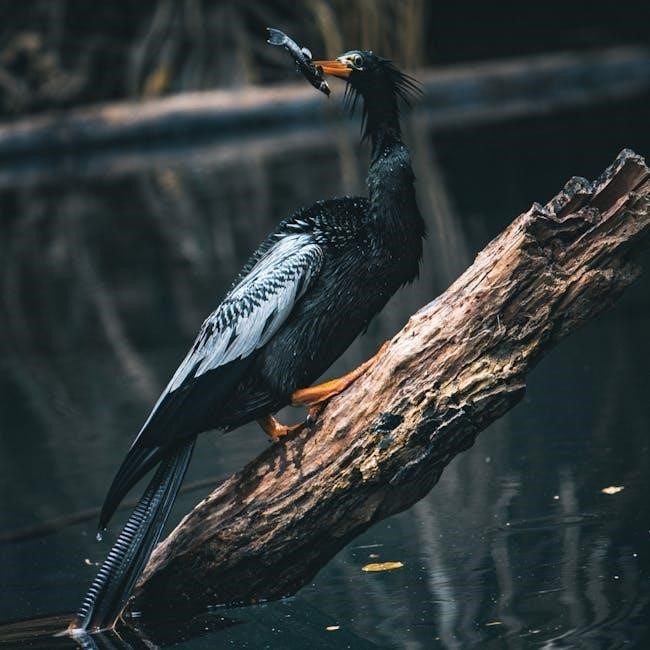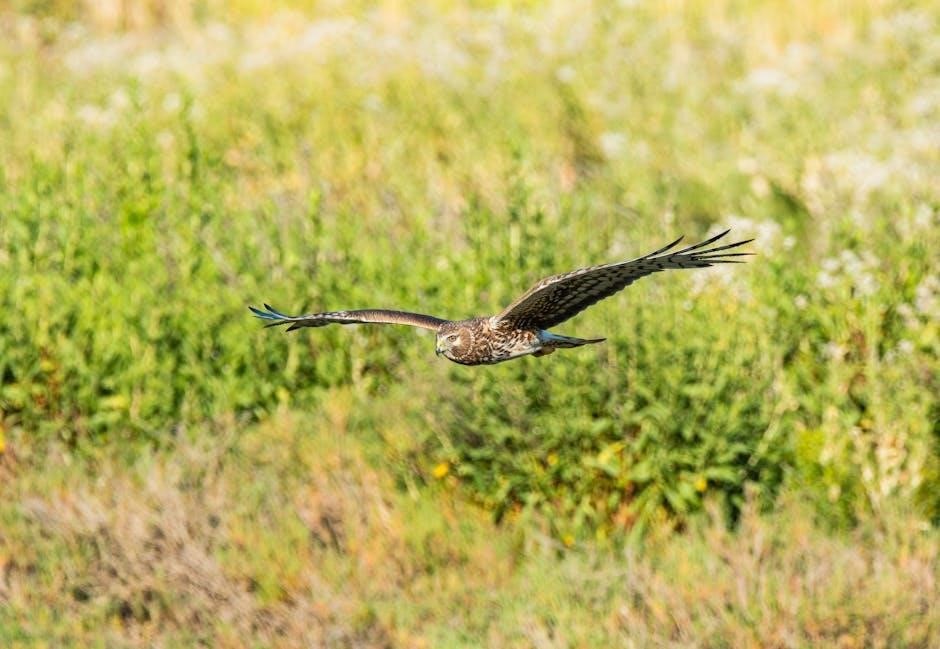Becoming a hunting guide requires a deep passion for the outdoors, extensive knowledge of wildlife, and a commitment to safety and ethical practices. It involves obtaining proper licenses, gaining hands-on experience, and developing essential skills to lead successful hunting expeditions while ensuring compliance with local regulations.
Licensing and Certification Requirements
Obtaining a valid hunting license and completing state-specific certification processes are essential. Most states require guides to pass exams and training courses to ensure expertise and compliance with regulations.
Obtaining a Valid Hunting License
Obtaining a valid hunting license is a critical step in becoming a hunting guide. Requirements vary by state, but most demand completing a hunter safety course and passing a written exam. Guides must demonstrate knowledge of local hunting regulations, wildlife conservation, and ethical practices. Some states also require additional certifications or specialized training. It’s essential to research specific state requirements, as they can differ significantly. Once licensed, guides must adhere to renewal processes and ongoing education to maintain their credentials. A valid license not only ensures legal compliance but also builds trust with clients and regulatory bodies.
State-Specific Certification Processes
To become a hunting guide, you must navigate a series of legal and practical steps. First, research the specific requirements for the state where you plan to work, as licensing and certification processes vary. Typically, obtaining a hunting license involves completing a safety course and passing a written exam, which covers local regulations, wildlife conservation, and ethical practices. Some states may require additional certifications or specialized training. Once licensed, staying informed about renewal processes and ongoing education is essential to maintain credentials. Additionally, consider gaining practical experience by working under an experienced guide, which can provide valuable insights and prepare you for the responsibilities of leading hunting expeditions.
Relevant Training Courses
While formal education isn’t always required, enrolling in relevant training courses can significantly enhance your skills and preparedness as a hunting guide. Courses in wildlife management, animal tracking, and wilderness first aid are highly recommended. These programs provide hands-on experience and theoretical knowledge, covering topics like wildlife behavior, habitat analysis, and ethical hunting practices. Some states also require completion of specific training programs to obtain a hunting guide license. These courses often include modules on safety protocols, conservation principles, and legal considerations. By investing in professional training, you can build a strong foundation for a successful and responsible guiding career, ensuring both client safety and environmental stewardship.
Gaining Experience in Hunting
Gaining experience in hunting involves starting as an apprentice, learning from seasoned guides, and acquiring practical knowledge of wildlife behavior, hunting techniques, and local ecosystems.
Working Under an Experienced Guide
Working under an experienced guide provides invaluable hands-on training, allowing you to learn practical hunting techniques, wildlife behavior, and ecosystem management. This mentorship helps you refine your skills in tracking, habitat understanding, and safety protocols. By assisting seasoned guides, you gain insights into client management and expedition planning. This experience also teaches you how to adapt to varying conditions and handle unexpected challenges, building your confidence and competence. It’s a crucial step in developing the expertise needed to lead successful hunting trips and ensure safe, enjoyable experiences for clients.
Building Knowledge of Wildlife and Ecosystems
Understanding wildlife behavior, habitats, and ecosystems is essential for becoming a skilled hunting guide. Study the life cycles, feeding patterns, and movement of game species to predict their behavior. Learn to identify tracks, signs, and calls to effectively locate animals. Familiarize yourself with local flora and fauna, as this knowledge enhances your ability to navigate and manage hunting environments. Stay informed about seasonal changes and how they impact wildlife habitats. This expertise not only improves hunting success but also ensures sustainable practices, fostering a deeper connection with nature and promoting ethical hunting standards. Continuous learning and observation are key to mastering this critical skill.

Developing Essential Skills
Master animal tracking, hunting techniques, and wilderness first aid. Develop a strong understanding of local regulations and refine your communication skills to lead clients effectively in the field.
Animal Tracking and Hunting Techniques
Mastering animal tracking involves recognizing tracks, scat, and habitat use to locate game effectively. Develop skills in stalking, calling, and using camouflage to approach animals undetected. Understand the best hunting techniques for different species, such as rifle or bow hunting, and learn to use weapons safely and accurately. Practice field dressing and game handling to ensure ethical and efficient processing. These skills are crucial for leading successful hunting expeditions and ensuring client satisfaction. Continuous practice and adaptation to varying environments will refine your expertise, making you a competent and reliable guide in the field.
Wilderness First Aid and Safety Protocols
Wilderness first aid and safety protocols are critical for hunting guides to ensure client and personal safety in remote areas. Obtain CPR and wilderness first aid certification to handle injuries like wounds, sprains, and fractures. Learn to recognize and treat environmental hazards such as hypothermia, heat exhaustion, and altitude sickness. Always carry a well-stocked first aid kit and know when to evacuate. Develop safety plans for emergencies, including communication strategies and navigation tools. Understanding these protocols ensures preparedness and builds trust with clients, making you a reliable and professional guide in the field. Continuous training keeps your skills updated and effective.
Understanding Local Regulations
Understanding local regulations is essential for hunting guides to ensure legal and ethical operations. Familiarize yourself with state and federal laws governing hunting seasons, bag limits, and restricted areas. Stay informed about permits, licenses, and land-use policies. Knowledge of wildlife management zones and private property rights is crucial to avoid legal issues. Compliance with these regulations not only prevents penalties but also promotes sustainable hunting practices. Guides must also understand gear restrictions, such as allowable firearms and hunting methods. Regularly update your knowledge as laws and regulations evolve to maintain professionalism and trust with clients. This ensures safe and responsible hunting experiences for everyone involved.
Building a Hunting Guide Business
Building a hunting guide business involves creating a detailed business plan, securing necessary permits, and obtaining leases to establish a reputable and legally compliant outfitting operation.
Creating a Comprehensive Business Plan

A well-structured business plan is crucial for launching a successful hunting guide business. It should outline clear goals, target markets, financial projections, and operational strategies. Include details on pricing, services offered, and marketing approaches. Conduct market research to identify competitors and potential clients. Define the mission and vision of your business, ensuring alignment with your values and ethical hunting practices. A solid plan will guide decision-making, help secure funding, and serve as a roadmap for long-term success in the competitive hunting guide industry;
Obtaining Necessary Permits and Leases
To legally operate as a hunting guide, securing the right permits and leases is essential. Requirements vary by state or region, but most demand a commercial guiding permit. This often involves submitting an application, paying fees, and meeting specific criteria. Additionally, leasing private land or obtaining access rights to public areas may be necessary to offer guided hunts. Ensure all permits are up-to-date and comply with local, state, and federal regulations. Some areas may require exclusive access agreements, so research thoroughly to avoid legal issues. Proper documentation ensures your business operates smoothly and maintains a reputable standing in the hunting community.

Marketing and Client Acquisition
Effective marketing strategies are crucial for attracting clients. Utilize social media, websites, and outdoor expos to promote your services. Building relationships with hunters and outdoor enthusiasts through networking can also help establish a loyal client base and grow your reputation as a reliable guide.
Effective Marketing Strategies
Developing a strong online presence is key to attracting clients. Create a professional website showcasing your expertise, services, and testimonials. Leverage social media platforms to share engaging content, such as high-quality photos and videos of successful hunts. Utilize search engine optimization (SEO) to ensure your website ranks high in search results. Consider targeted advertising to reach potential clients interested in hunting. Additionally, collaborate with outdoor gear businesses or hunting organizations to cross-promote your services. Building relationships through networking events and outdoor expos can also help establish credibility and attract a loyal client base.
Networking with Hunters and Outdoor Enthusiasts
Building relationships with hunters and outdoor enthusiasts is crucial for establishing a successful guiding career. Join local hunting clubs, attend outdoor expos, and participate in wildlife conservation events to connect with potential clients. Engage in online forums and social media groups dedicated to hunting to share your expertise and gain visibility. Collaborate with outdoor gear shops or hunting organizations to cross-promote your services. Personal interactions and word-of-mouth referrals are powerful tools for attracting clients. By fostering a strong network, you can build trust and credibility within the hunting community, ultimately growing your client base and enhancing your reputation as a reliable guide.

Legal and Ethical Considerations
Compliance with state and federal laws is essential. Ensure sustainable practices, respect wildlife, and uphold ethical hunting standards to maintain integrity and responsibility in your guiding career.
Compliance with State and Federal Laws
Compliance with state and federal laws is crucial for hunting guides. Each state has specific regulations regarding hunting permits, bag limits, and seasonal restrictions. Guides must ensure they and their clients adhere to these rules to avoid penalties. Federal laws, such as those protecting endangered species, must also be strictly followed. Staying informed about legal updates is essential to maintain compliance. Failure to follow regulations can result in fines, license revocation, or legal action. Ethical compliance not only protects the environment but also upholds the guide’s professional reputation and ensures sustainable hunting practices for future generations.
Ensuring Sustainable and Responsible Hunting Practices
Becoming a hunting guide involves a combination of education, experience, and adherence to regulations. Start by researching the specific licensing requirements for your state, as these can vary. While formal education isn’t always mandatory, courses in wildlife management and outdoor skills can be beneficial. Gaining experience is crucial, often by working under an established guide to learn the trade. Developing skills in animal tracking, wilderness safety, and knowledge of local ecosystems is essential. Understanding and complying with state and federal laws ensures ethical and sustainable hunting practices. Building a network with other hunters and outdoor enthusiasts can also provide valuable opportunities and insights. Combining these elements will help you build a successful career as a hunting guide.
Becoming a successful hunting guide requires dedication, knowledge, and a passion for the outdoors. Start by obtaining the necessary licenses and certifications, then gain hands-on experience. Build a strong understanding of wildlife and local ecosystems to ensure ethical practices. Network with other hunters and outdoor enthusiasts to expand your opportunities. Stay updated on state and federal regulations to maintain compliance. Always prioritize safety and sustainability in your guiding practices. By combining these elements, you can build a reputable career as a hunting guide and contribute positively to the conservation of natural resources.
